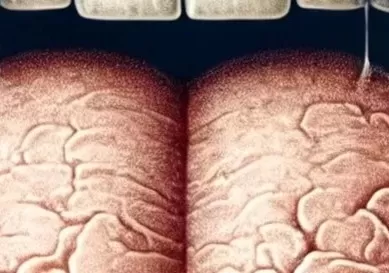Dry mouth is rarely the first menopause symptom people talk about. Hot flushes and mood swings usually steal the spotlight, leaving oral changes overlooked until they start to interfere with daily life. Yet for many women, the simple act of enjoying a meal, holding a conversation, or sleeping through the night without waking up desperate for water can become a real challenge.
It is not just uncomfortable – reduced saliva flow can have a knock-on effect on your overall oral health, increasing your risk of tooth decay, gum disease, and mouth infections. For some, there is also the social anxiety that comes with worrying about bad breath or struggling to get words out smoothly during a meeting or presentation. And because these changes often creep in gradually, they are easy to brush off until they become persistent.
The good news? Once you understand the connection between menopause, oestrogen levels, and saliva production, you can take practical steps to relieve the discomfort and protect your long-term oral health. This guide will walk you through why dry mouth happens during menopause, the signs to watch for, and the most effective at-home and professional treatments available – all grounded in expert advice.
First, let’s look at what dry mouth really is, and why it matters more than you might think during menopause.

